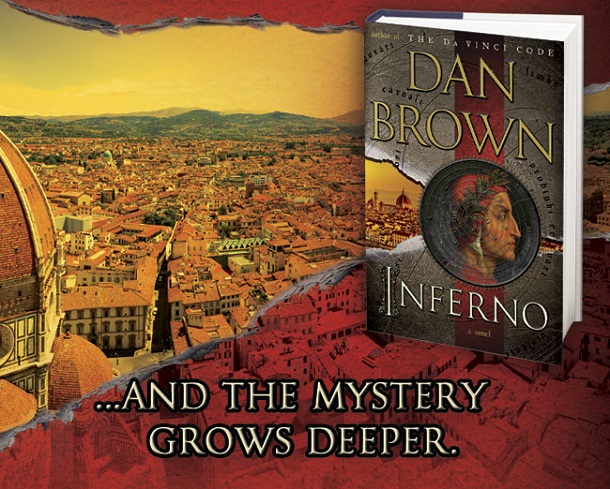Dan Brown’s new novel, Inferno, is “clunky, but clever” and the American author’s “charmless, tuneless prose” won’t stop it becoming the year’s best-selling book, early reviews suggest.
Inferno is the fourth book by Brown to feature Robert Langdon, a fictional Harvard professor of religious iconology. It draws inspiration from Dante’s epic poem The Divine Comedy, an allegorical vision of the afterlife that Dan Brown describes as “one of history’s most celebrated writings”.
What’s interesting about Inferno is that Brown introduces a “new and welcome moral ambiguity to his work”, says Kerridge. Zobrist may talk like a stereotypical James Bond villain, but Brown “repeatedly implies” that there is something to be said for a comparably drastic approach to solving the global population crisis.
Brown makes his reader think the race to identify and nullify the virus – a frantic chase that switches from Florence to Istanbul – is the main game. Then, with a “wicked cunning that even those of us who labour through his charmless, tuneless prose could hardly gainsay,[he] pulls several rugs from underneath his reader”.
Inferno, set in Florence, revisits Dr Robert Langdon, the main character in previous Brown novels, Angels and Daemons and best seller the Da Vinci Code.
Langdon is an American expert on classical symbols and art and the latest outing sees him tracking clues across Florence linked to Dante’s Inferno.
While fans were keen to get their hands on copies of the first book from the best selling author in four years, the reviews have been mixed, praising the thriller’s fast pace but quick to condemn the similarities with previous outings.
John Howells from Waterstones, defended the new novel saying, “the books are just readable, these are thrillers. They are great fun to read and if you just take them as that then you’ll have a fantastic time.”
[adrotate banner=”64″]


